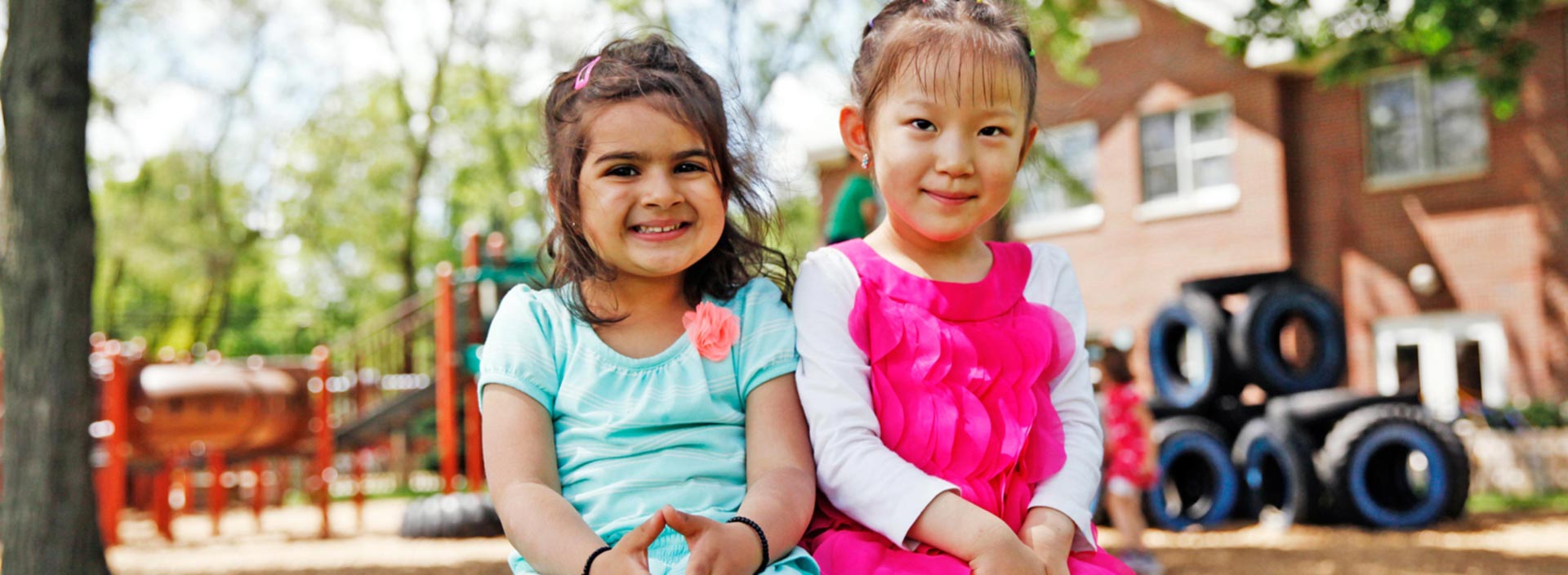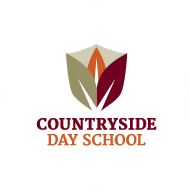
Diversity and Inclusion
Bringing real-world experience into the classroom is central to our mission. In turn, having a staff, student body and family population that reflect the richness and diversity of our community is important to us. We are committed to creating a school community where we embrace and empower success across every race, gender, age, ethnicity, religion, sexual orientation, and economic background. As we instill the quality of respect in our students, they learn to listen with an open mind and learn from others who may have different backgrounds, experiences and viewpoints — always leading with empathy. These are critical life lessons for becoming conscientious communicators, citizens and leaders.
Anti-Bullying Policy
Bullying, intimidation, and harassment diminish a student’s ability to learn and the school’s ability to educate. Bullying on the basis of actual or perceived race, color, religion, gender, national origin, ancestry, age, marital status, physical or mental disability, military status, sexual orientation, gender-related identity or expression, association with a person or group with one or more of the aforementioned actual or perceived characteristics, or any other distinguishing characteristic is prohibited at Countryside, and in each of the following situations:
- During any school-sponsored education program or activity;
- While in school, on school property, on school buses or other school vehicles, or at school-sponsored or school-sanctioned events or activities.
- Through the transmission of information from a school computer, a school computer network, or other similar electronic school equipment; or
- Through the transmission of information from a computer that is accessed at a non-school-related location, activity, function, or program or from the use of technology or an electronic device that is not owned, leased, or used by a school if the bullying causes a substantial disruption to the education process or orderly operation of a school. This item (4) applies only in cases in which a school administrator or teacher receives a report that bullying through this means has occurred and does not require a school to staff or monitor any non-school-related activity, function or program.
Bullying includes cyber-bullying (as defined below) and means any severe or pervasive physical or verbal act or conduct, including communications made in writing or electronically, directed toward a student or students that has or can be reasonably predicted to have the effect of one or more of the following:
- Placing the student or students in reasonable fear of harm to the student’s or students’ person or property;
- Causing a substantially detrimental effect on the student’s or students’ physical or mental health;
- Substantially interfering with the student’s or students’ academic performance; or
- Substantially interfering with the student’s or students’ ability to participate in or benefit from the services, activities, or privileges provided by the school.
Cyber-bullying is defined as bullying through the use of technology or any electronic communication, including without limitation any transfer or signs, signals, writing, images, sounds, data or intelligence or any nature transmitted in whole or in a part by a wire, radio, electromagnetic system, photo-electronic system, or photo-optical system, including without limitation electronic mail, Internet communications, instant messages, or facsimile communications. “Cyber-bullying” includes the creation of a webpage or weblog in which the creator assumes the identity of another person or the knowing impersonation of another person as the author of posted content or messages if the creation of impersonation creates any of the effects enumerated in the definition of bullying in this policy. “Cyberbullying” also includes the distribution by electronic means of a communication to more than one person or the posting of material on an electronic medium that may be accessed by one or more persons if the distribution or posting creates any of the effects enumerated in the definition of bullying per this policy.
Bullying is strictly prohibited by Illinois law and contrary to the Countryside Day’s policies. Students are encouraged to immediately report bullying to the Head of School, Business Manager or Director of Operations. A report may be made orally or in writing to the above-named individuals, whose contact information is provided below. Anyone, including staff members and parents/guardians, who has information about actual or threatened bullying should report it to any of the Complaint Managers below:
Wendy Calise, 847-498-1105 wendy@countrysideday.org
Karen O’Malley, 847-498-1105 karen@countrysideday.org
Jim Aspinall, 847-498-1105 jim@countrysideday.org
Consistent with applicable federal and state laws and rules governing student privacy rights, the Head of School, or her designee, will inform all parents/guardians of those students involved in the alleged incident of bullying and discuss, as appropriate, the need for interventions, such as individual counseling, social work services, group counseling, community-based services, and/or restorative measures.
Reports of bullying will be promptly addressed by appropriate school staff members and/or administrators. Reasonable efforts will be made to complete the investigation as soon as possible after the date the report of the incident of bullying was received and taking into consideration additional relevant information received during the course of the investigation about the reported incident of bullying. Any reports of bullying will be kept confidential to the extent possible to give the need to the reported claim. School support personnel and other staff members with relevant knowledge and experience may be involved in the investigation process, as deemed appropriate. The Head of School, or her designee, shall be notified of all reports of bullying as soon as possible after the report is made. Consistent with the applicable federal and state law parents/guardians of the students who are parties to the investigation may be provided relevant information regarding the investigation, as deemed appropriate by the Head of School, or her designee, and an opportunity to meet with the Head of School, or her designee, to discuss the investigation, the findings of the investigation, and the actions taken to address the reported incident of bullying, as deemed appropriate.
Any student who is determined, after an investigation, to have engaged in bullying will be subject to disciplinary consequences and provided an opportunity to make amends as deemed safe and appropriate. Students who make good faith complaints will not be disciplined. Any retaliation or reprisal against any person who reports an act of bullying per this policy is a violation of this policy and strictly prohibited. Further, consequences and appropriate disciplinary action will be taken as deemed necessary by Countryside Day for the person engaging in the retaliation or reprisal.
Appropriate consequences and remedial action may also be taken against a person found to have falsely accused another of bullying as a means of retaliation or as a means of bullying.
The Head of School shall assist the Board of Trustees with its evaluation and assessment of the policy’s outcomes and effectiveness. This process shall include, but is not limited to, factors such as: The frequency of victimization, student, staff, and family observations of safety at a school, identification of areas of a school where bullying occurs., the types of bullying being utilized, bystander intervention or participation. The information developed as part of the evaluation process will be posted on CDS’ website.
The bullying policy is consistent with other school policies.
Exact Date of Approval : 10/27/23
Code Of Conduct For Professional Relationships With Students
The relationships that students develop with their teachers and members of the staff are a hallmark of the Countryside Day School (the “School”) experience. The School supports these relationships and is committed to ensuring that they are formed and maintained in ways that contribute to the well-being and safety of its students and the adults whose responsibilities entail working closely with them. Therefore, the School expects all employees who work at the School and volunteers (collectively “School adults”) to create, model, and maintain healthy, supportive, and appropriate boundaries with students and alumni. School adults must be vigilantly aware of this responsibility in all aspects of their interactions with students and alumni, being mindful at all times of the importance of their visibility and presence as positive role models. School adults must also be aware of the inherent power differential between employees/volunteers and students/alumni, and must strive at all times to model appropriate behavior to all members of the School community.
These guidelines, in conjunction with the School’s policies on harassment and student and employee behavior, help to define the expectations the School has for the boundaries between students and School adults. In addition, employees must follow the Illinois Educator Code of Ethics [*It should be noted, however, that these policies do not necessarily apply when the adult is the parent or guardian of the student in question.]
In addition to the behavior prohibited by the conduct and harassment policies set out in the School’s Personnel Handbook, School adults should endeavor to avoid any behavior that might have the appearance of impropriety, and in particular should adhere to the following expectations:
Address students by the names they call themselves and ask students to address adults (including members of the staff) by the appropriate title (Mr., Mrs., Ms., Coach, etc.), followed by their name.
Ensure that one-on-one meetings with students occur in public spaces or in a room with an open door. Student and adult interactions should be readily interruptible or within hearing or sight range of another adult. If the circumstances require the door to be closed because additional privacy is needed, the meeting should take place in a room whose door has a window which should remain uncovered, and the door to the room should remain unlocked. When circumstances require additional privacy, School adults should let a supervisor know in advance, whenever possible.
Use only their official School-provided email account to communicate electronically with students, and refrain from excessive communications with students outside of normal school hours.
Do not communicate with students via personal cell phone or text. Exceptions may be made for emergencies that require immediate communication with students. In such cases, students should be texted as a group (i.e., not individually) and/or the Head of School should be informed about the communication and copied on the message.


